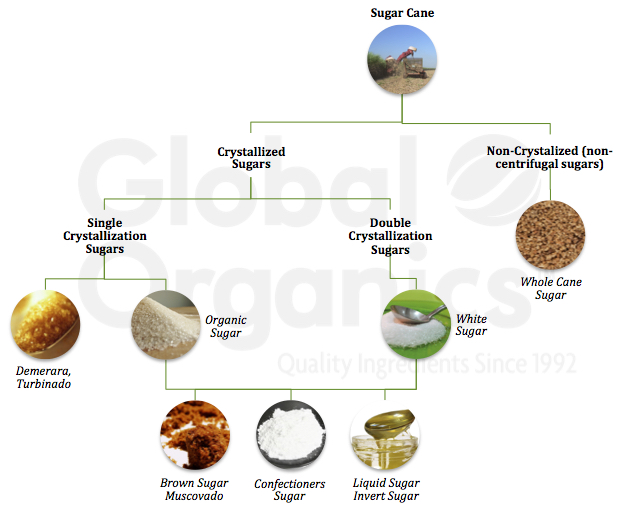Advanced Cane Sugar Processing: Enhancing Performance and Sustainability
Advanced Cane Sugar Processing: Enhancing Performance and Sustainability
Blog Article
A Detailed Summary of the Wellness and Economic Ramifications of Cane Sugar Processing on Neighborhood Communities
Walking stick sugar handling plays a crucial duty in shaping the economic landscape of regional areas, offering employment chances and boosting ancillary industries. The health ramifications linked with high sugar usage can not be forgotten, as they contribute to climbing rates of weight problems and diabetes mellitus.
Economic Advantages of Cane Sugar Processing
Walking cane sugar handling supplies significant financial benefits that prolong beyond the instant farming field. The cultivation and handling of sugarcane produce various work possibilities, from farming to manufacturing and circulation. This work generation not only supports local economic situations yet likewise promotes community growth by offering steady revenue resources for families.
Furthermore, the sugar market boosts secondary organizations, including transportation, tools supply, and product packaging solutions (Cane Sugar Processing). As these markets expand, they contribute to a more durable financial framework, boosting total area strength. The export possibility of processed walking stick sugar additionally enhances financial advantages, placing regions as competitive players in global markets
Financial investment in modern-day processing centers can bring about increased productivity and effectiveness, consequently reducing waste and enhancing source usage. This change not just benefits the neighborhood economy yet likewise supports sustainability initiatives by minimizing environmental impacts.
Moreover, the income generated from cane sugar handling can be reinvested in local infrastructure, education and learning, and healthcare, promoting alternative area development. On the whole, the financial benefits of cane sugar handling are multifaceted, supplying a structure for enduring prosperity in agricultural areas.
Wellness Threats Connected With Sugar Consumption
Excessive sugar consumption presents significant wellness threats that necessitate severe focus. High intake of included sugars, specifically from processed foods and drinks, has actually been connected to many wellness issues. One of one of the most pressing worries is weight problems, as sugary diets contribute to a raised calorie consumption without giving vital nutrients. This excess can result in metabolic problems, consisting of type 2 diabetic issues, which has actually ended up being progressively common in both grownups and children - Cane Sugar Processing.
Additionally, high sugar intake is connected with heart disease. Elevated blood glucose degrees can lead to insulin resistance, a precursor to different heart-related concerns. Furthermore, sugar can have destructive impacts on oral health and wellness, resulting in cavities and gum illness, as germs in the mouth grow on sugar, producing acids that wear down tooth enamel.
Additionally, arising study recommends a potential web link between high sugar consumption and mental health and wellness problems, such as depression and stress and anxiety. As areas face these wellness threats, it becomes important to promote awareness and motivate much healthier dietary selections. Attending to sugar usage is crucial not only for private health and wellness yet also for the overall health of neighborhood areas, emphasizing the need for comprehensive public health strategies.
Environmental Effects of Sugar Production
Frequently neglected in conversations concerning sugar's effects is the significant environmental influence of sugar production. The cultivation of sugarcane frequently requires substantial land usage, resulting in logging, loss of biodiversity, and disruption of local environments. The conversion of forests and marshes right into sugar vineyards can lead to environment destruction, harmful countless species and changing environmental balance.
In addition, sugar production is resource-intensive, consuming substantial quantities of water for watering. This can bring about exhaustion of local water resources, detrimentally affecting both agricultural practices and community access to clean water. Furthermore, using chemical fertilizers and pesticides in sugarcane farming can add to dirt destruction and water air pollution, as overflow from these chemicals gets in nearby rivers and lakes, impacting marine life and human health.
The environmental impact includes the processing phase, where energy intake and waste generation more worsen ecological issues. Air air pollution from shedding sugarcane fields, in addition to greenhouse gas emissions, contribute to environment adjustment. Therefore, the ecological effects of sugar manufacturing warrant major consideration, urging stakeholders to adopt even more lasting techniques to reduce these damaging results on neighborhood communities and communities.
Work Production and Community Growth
The ecological obstacles positioned by sugar production are commonly reversed by its possibility for economic benefits, particularly in task production and neighborhood advancement. The walking stick sugar market acts as a substantial source of employment in numerous rural locations, providing work throughout different ability levels, from agricultural labor to handling and go to website circulation duties. This employment not only sustains specific households however also adds to the general economic vitality of neighborhood communities.
Additionally, the facility of sugar processing centers stimulates supplementary organizations, such as transport services, equipment supply, and maintenance service providers. As these businesses flourish, they produce additional work and boost regional economies. The revenue generated from the sugar market additionally leads to raised tax obligation earnings, which can be reinvested into area services such as health care, facilities, and education growth.
In addition, the sugar market frequently involves in community growth initiatives, such as sustaining neighborhood institutions and wellness programs, therefore boosting the top quality of life for homeowners. By cultivating solid area ties and promoting financial development, the cane sugar processing industry plays an essential duty in uplifting regional populations, making it a necessary element of lasting growth approaches in sugar-producing regions.
Balancing Health and Economic Development
In browsing the intricacies of walking stick sugar handling, an important obstacle hinges on stabilizing wellness considerations with financial growth. The sugar sector substantially adds to Going Here regional economies by generating jobs, boosting associated markets, and enhancing tax incomes. However, the wellness effects related to excessive sugar intake can lead to persistent conditions such as obesity, diabetes mellitus, and cardiovascular issues, which can concern public health systems and diminish workforce productivity.

Furthermore, regulatory structures can play a critical duty in leading sector methods towards even more sustainable and health-conscious methods. By cultivating cooperation between federal government bodies, wellness companies, and the sugar industry, areas can browse the duality of health and wellness and financial development, guaranteeing that the benefits of cane sugar processing are equitably shared while focusing on public wellness.
Conclusion
To conclude, the handling of cane sugar offers both substantial economic advantages and significant health and wellness threats for regional neighborhoods. While it cultivates job creation and promotes local growth, the associated health concerns, especially regarding weight problems and diabetes mellitus, necessitate a mindful balancing act. By advertising responsible consumption and investing in area education and learning and lasting practices, it is possible to maximize economic advantages while reducing negative wellness effects, thereby ensuring a much healthier future for local populations.
Furthermore, sugar can have destructive effects on dental health, resulting in tooth cavities and periodontal disease, as microorganisms in the mouth thrive on sugar, generating acids that deteriorate tooth enamel.
Resolving sugar try this website usage is crucial not only for private wellness yet likewise for the general wellness of neighborhood communities, stressing the need for detailed public health and wellness methods.
Regularly overlooked in conversations about sugar's ramifications is the considerable environmental effect of sugar manufacturing. The health implications associated with extreme sugar intake can lead to persistent conditions such as weight problems, diabetes mellitus, and cardiovascular concerns, which can problem public health systems and diminish labor force productivity.

Report this page